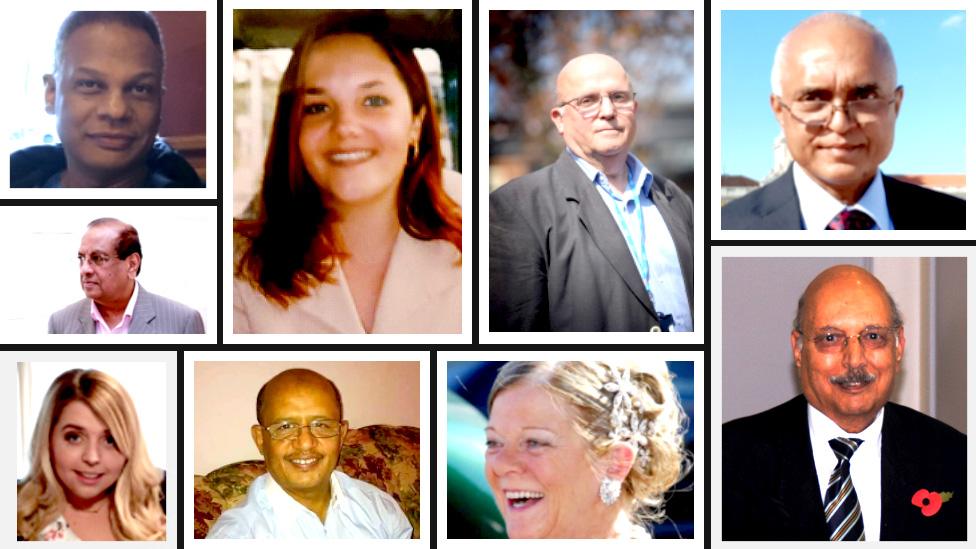Coronavirus: Is this the final hurrah for clap for carers?
- Published
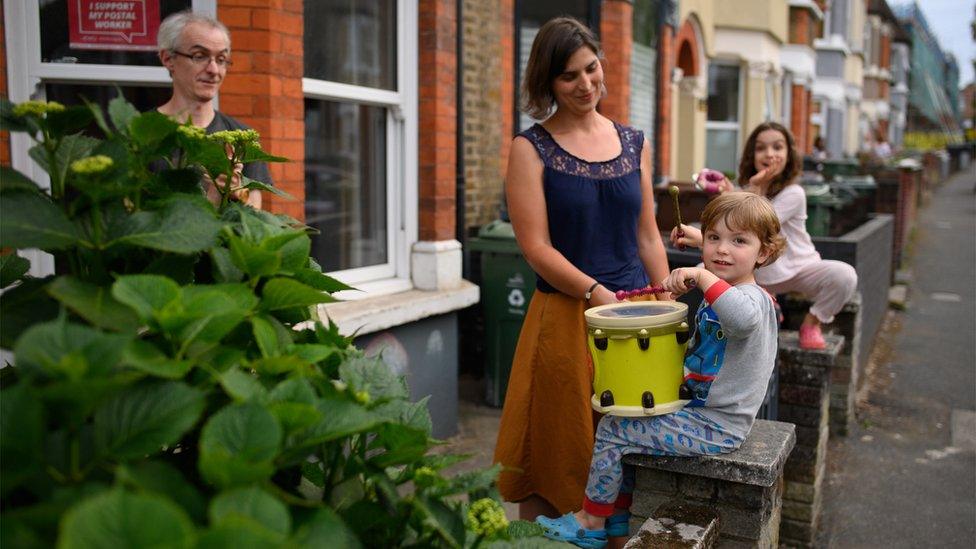
Thursday's Clap for Our Carers could be the last one for some time
On Thursday evening many of us in the UK grabbed our pots and pans, scooped up the dog, and nervously looked out of the window to make sure our neighbours were doing the same.
Then, when the clock struck 20:00 BST, the sound of clapping, cheering and wooden spoons hitting saucepan lids once again filled the street as we celebrated those working on the front line of the coronavirus pandemic.
But founder Annemarie Plas has said the 10th week of clapping would be a good time for it to end and for it to instead become an annual event.
So is this the end of the weekly clap?
'Part of something bigger'
On the Lissenden Gardens estate, in north London, like many places across the UK, the clap is credited with bringing neighbours together.
"Even though I have lived here 17 years I have got to know people I never would have met," Andrea Dawson says.
"It has basically brought love, which is the key thing to all of our lives."
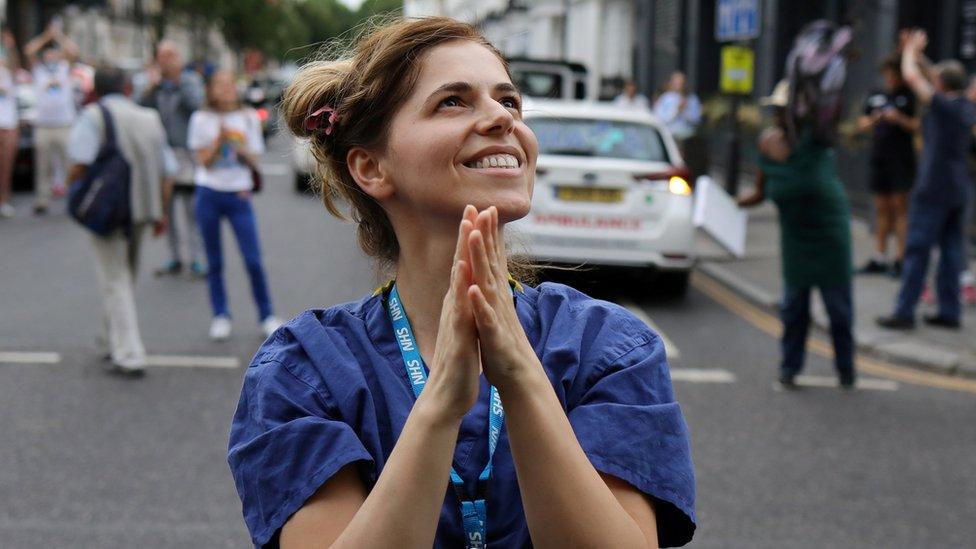
As well as appreciating carers, the clap has brought people out onto their balconies, allowed them to meet their neighbours and even helped organise measures like the cleaning of stairways.
Frank Chalmers, of the Lissenden Gardens Tenants Association, said the weekly ritual has been "very good for the community" and promised to "go out with a bang this evening".
"There are people on the estate who have said they feel really isolated and they look forward to Thursday evenings, it is the highlight of the week. They feel part of something bigger."
Mr Chalmers said as a result of the weekly clap there were now plans to hold regular concerts with local children performing, and to celebrate the local community, as well as sharing a weekly newsletter.
He says many residents felt now was the right time to end the clapping, fearing it could become politicised. Yet others are happy for it to go on.
Sean Carroll, a matron at the Royal Free Hospital, said it had a positive impact on him and his colleagues and made them feel "really valued".
So why are there calls for it to end?

A SIMPLE GUIDE: What are the symptoms?
RISK AT WORK: How exposed is your job?
HOW A VIRUS SPREADS: An explanation
RECOVERY: How long does it take to get better?

The campaign originally began as a one-off to support NHS staff on 26 March - three days after the UK went into lockdown.
However, after proving very popular, it was expanded to cover all key workers and has continued every Thursday at 20:00 BST.
Since then, the shows of appreciation have got more extravagant, with displays from the public and emergency services on Westminster bridge drawing criticism over social distancing.
Messages have been projected on to buildings, airport runways have been taken over and the Woolwich ferry even span in the Thames.
Yet some have criticised it as an empty display while medical staff were "overlooked and underpaid", as Labour leader Keir Starmer said.
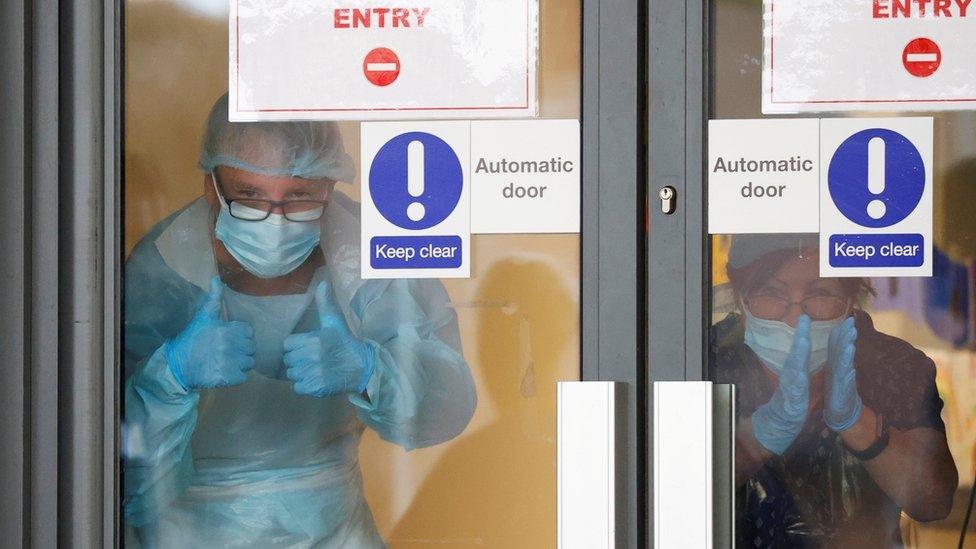
Others pointed to the hypocrisy of applauding workers after holding VE Day parties or going to crowded parks and beaches, where people could spread the disease.
Some health care workers have also taken to social media to say it was not applause they needed but personal protective equipment (PPE), saying colleagues and friends died.
And there was particular criticism of politicians applauding while raising the health surcharge for non-European Union workers to access the NHS, a move the government later reversed.
'Felt like a show'
Dr Meenal Viz, who is crowdfunding to bring legal action against the government over a lack of PPE, said the clapping had been a boost for medics but felt politicians had used it to give a public display of support.
"Of course we are grateful, this is the support from the public we always wanted," she said. "We work for the NHS system but it is the support of the public and our patients that really keeps us going.
"At a time like this [the clapping] left us with a fuzzy feeling in our hearts.
"But then we saw politicians appear on our screens and it almost seemed like a show."
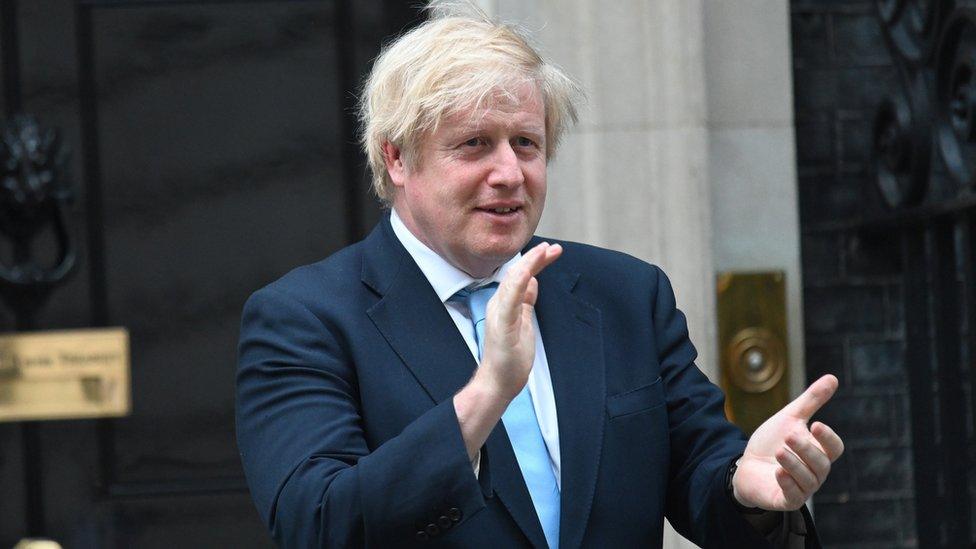
Ms Plas, a Dutch-born Londoner, said it had been "overwhelming" to see how far the weekly clapping she founded had spread.
But she said it had now "had its moment", saying it would be "beautiful" to end while people still felt positive about it.
She said she felt people had now shown key workers their appreciation and had concerns about it becoming too political. Now, she said, the responsibility lay with the "people that are in power" to reward key workers.
Susan Masters of the Royal College of Nursing said some streets would stop taking part but others would "keep the sense of solidarity going a little longer".
"The clapping might drop off but the public support will not dissipate," she said.
Ms Plas said people were welcome to continue the tradition and said she planned to keep meeting her neighbours on Thursday evenings.
"Tonight I will applaud but next week I will still go out and see who is out there and just want to check in because we are still in crisis," she said.
"For me it is good to know who all my neighbours are, and to know I am not alone."
- Published22 May 2020
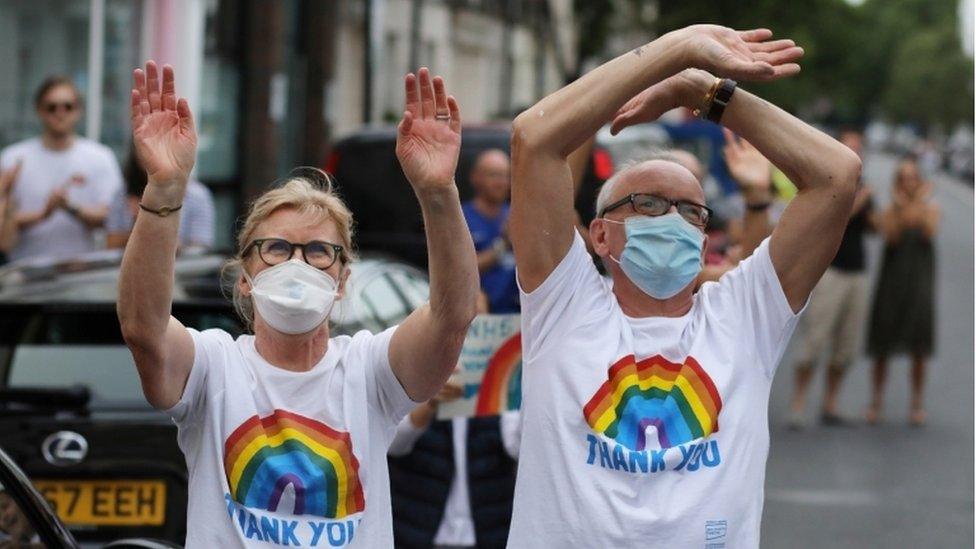
- Published21 May 2020
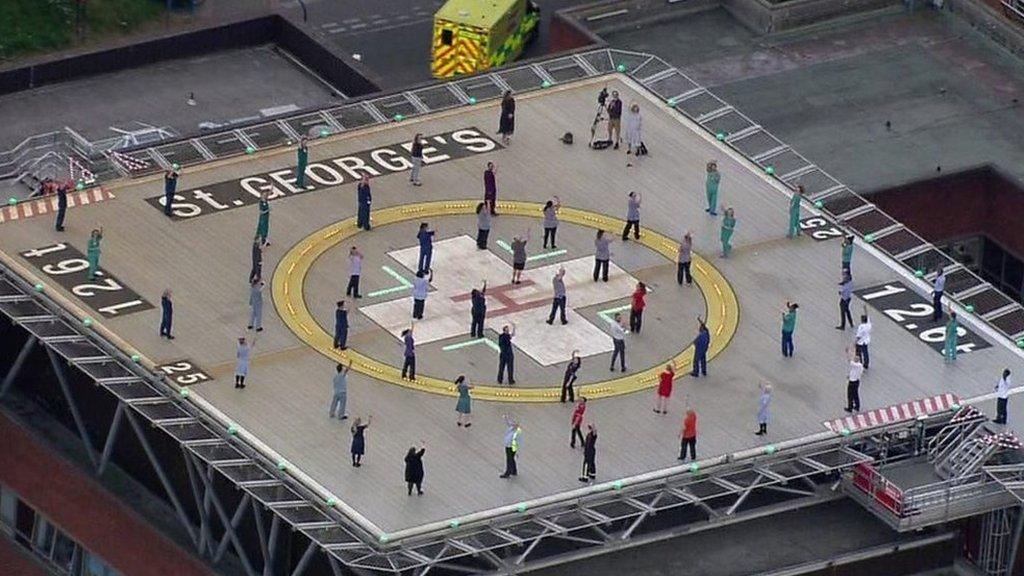
- Published14 May 2020
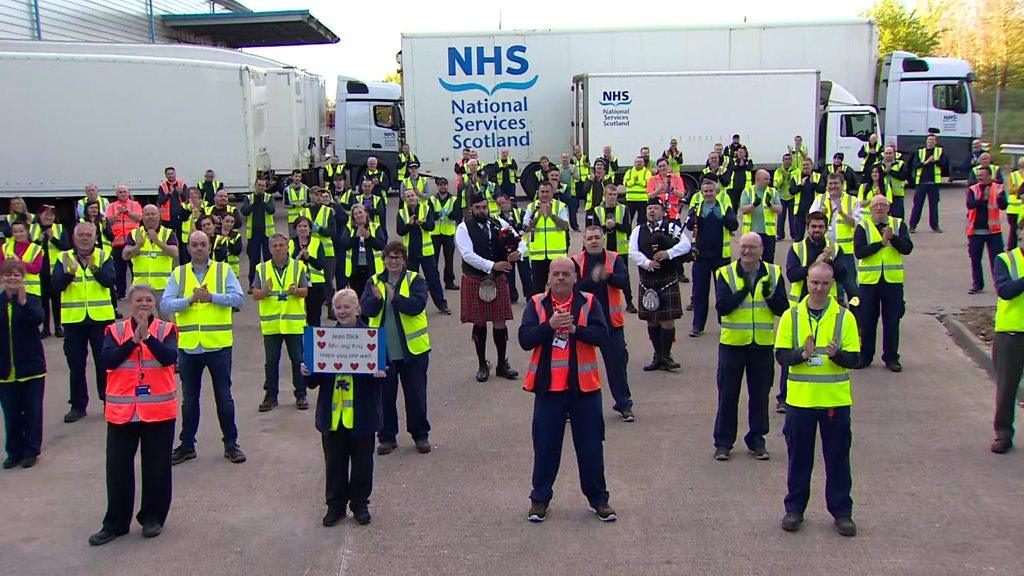
- Published30 April 2020
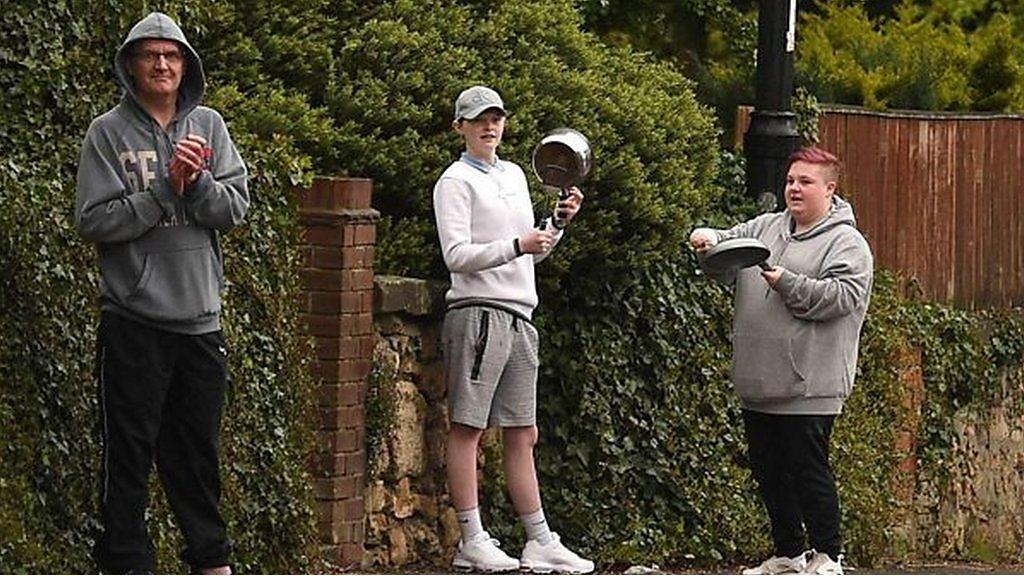
- Published28 April 2020
